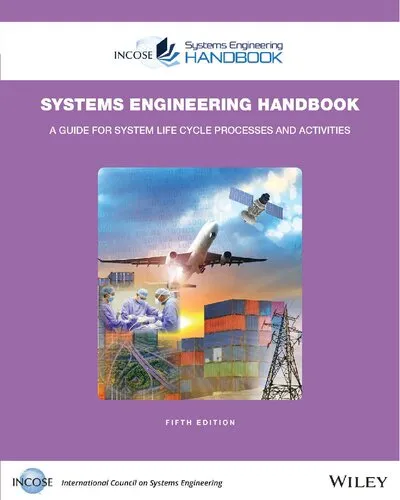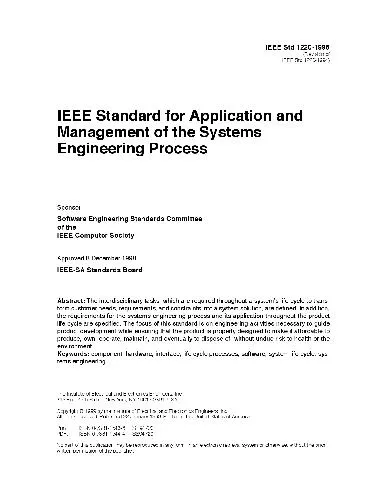INCOSE Systems Engineering Handbook
4.5
Reviews from our users

You Can Ask your questions from this book's AI after Login
Each download or ask from book AI costs 2 points. To earn more free points, please visit the Points Guide Page and complete some valuable actions.Related Refrences:
Introduction to the INCOSE Systems Engineering Handbook
The INCOSE Systems Engineering Handbook serves as a cornerstone in the realm of systems engineering, offering comprehensive guidelines and principles that are pivotal for both novice practitioners and seasoned professionals.
Detailed Summary
This handbook is meticulously designed to provide a robust framework for understanding and applying the principles of systems engineering. It encapsulates the collective wisdom of the International Council on Systems Engineering (INCOSE) and offers standardized practices that are recognized globally. The book begins with the fundamental concepts of systems engineering, including its definition, importance, and application areas.
The early chapters introduce the SE process framework, emphasizing the significance of life cycle stages and the role of a systems engineer in navigating these stages effectively. The text proceeds to discuss the intricacies of requirements engineering, ensuring that practitioners can gather, analyze, and validate requirements with precision.
The handbook further delves into design considerations, stressing the need for modeling and simulation to optimize system performance. Integration and verification are explored in detail, providing insights into how to systematically combine system components and ensure they perform as intended.
Later sections address contemporary challenges in systems engineering, such as complexity management and sustainability. By the end of the book, readers gain a holistic view of systems engineering practices and the strategic thinking required to implement them successfully.
Key Takeaways
- A thorough understanding of systems engineering principles and methodologies.
- Insight into the system life cycle and the role of systems engineering in different phases.
- Strategies for effective requirements engineering and stakeholder engagement.
- Techniques for design optimization using modeling and simulation.
- Best practices for integration, verification, and validation of systems.
Famous Quotes from the Book
"Systems engineering is the art and science of creating whole solutions to complex problems."
"Understanding stakeholder needs is the foundation of effective system design."
Why This Book Matters
The INCOSE Systems Engineering Handbook is more than just a collection of engineering practices; it is a testament to the collaborative efforts and shared knowledge of systems engineers worldwide. As industries become more interconnected and complex, the demand for proficient systems engineers is rising. This handbook addresses that need by fostering a deep understanding of systems thinking, ensuring that professionals are equipped to design and manage systems that meet stakeholder requirements while adapting to ever-changing environments.
Furthermore, the book's emphasis on standard practices facilitates communication and collaboration across global teams, promoting efficiency and innovation. By following the guidelines set forth in this handbook, practitioners can contribute to sustainable and ethical engineering solutions that have a positive impact on society and the planet.
Free Direct Download
You Can Download this book after Login
Accessing books through legal platforms and public libraries not only supports the rights of authors and publishers but also contributes to the sustainability of reading culture. Before downloading, please take a moment to consider these options.
Find this book on other platforms:
WorldCat helps you find books in libraries worldwide.
See ratings, reviews, and discussions on Goodreads.
Find and buy rare or used books on AbeBooks.
1348
بازدید4.5
امتیاز50
نظر98%
رضایتReviews:
4.5
Based on 0 users review
"کیفیت چاپ عالی بود، خیلی راضیام"
Questions & Answers
Ask questions about this book or help others by answering
No questions yet. Be the first to ask!



